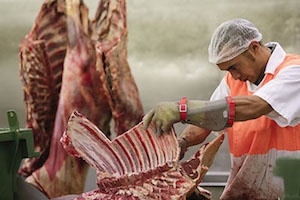EU and UK announce complete halt to beef imports from Brazil
Reasons for the ban
Estradiol is a sex hormone used in some countries to speed up the growth of livestock. However, its use in livestock farming is strictly prohibited in the European Union due to potential risks to human HEALTH. A recent audit by European experts found significant deficiencies in Brazil’s animal traceability system, meaning that controls over which hormones were used in raising livestock were ineffective.
Economic impact
According to Brazil’s statistical office Agrifatto, the UK accounts for 6.9% of Brazil’s total beef exports. In the first eight months of 2024 , beef shipments to Europe and the UK brought in €521 million, down from €675 million for the whole of 2023. This reduction in revenue threatens not only Brazilian MEAT producers, but also the country’s economy as a whole, given that the meat industry plays a major role in Brazilian exports. Brazil has been given twelve
months
to develop a new protocol, which must include alternative methods of certification for beef. This time will be used to improve the inspection system and ensure compliance with strict European safety standards. However, given the complexity and scale of the task, it is unclear whether Brazil will be able to meet all the requirements by the deadline.
Impact on the market and consumers
The ban on Brazilian beef imports will also affect the meat market in Europe. Consumers may face a shortage of certain types of meat, which in turn may lead to higher prices. Alternative suppliers, such as Argentina and Australia , may try to fill the gap, but they must also meet strict quality and safety standards.
Stopping beef imports from Brazil is not only an economic challenge, but also a social one. It raises important questions about food safety and the responsibility of producers for the quality of their products. Brazil , in turn, must not only solve the estradiol problem, but also improve the overall system of animal husbandry inspections in order to restore the trust of European consumers and reclaim its market. Time will tell whether the country can rise to the challenge and return to the international arena as a reliable supplier of meat.

